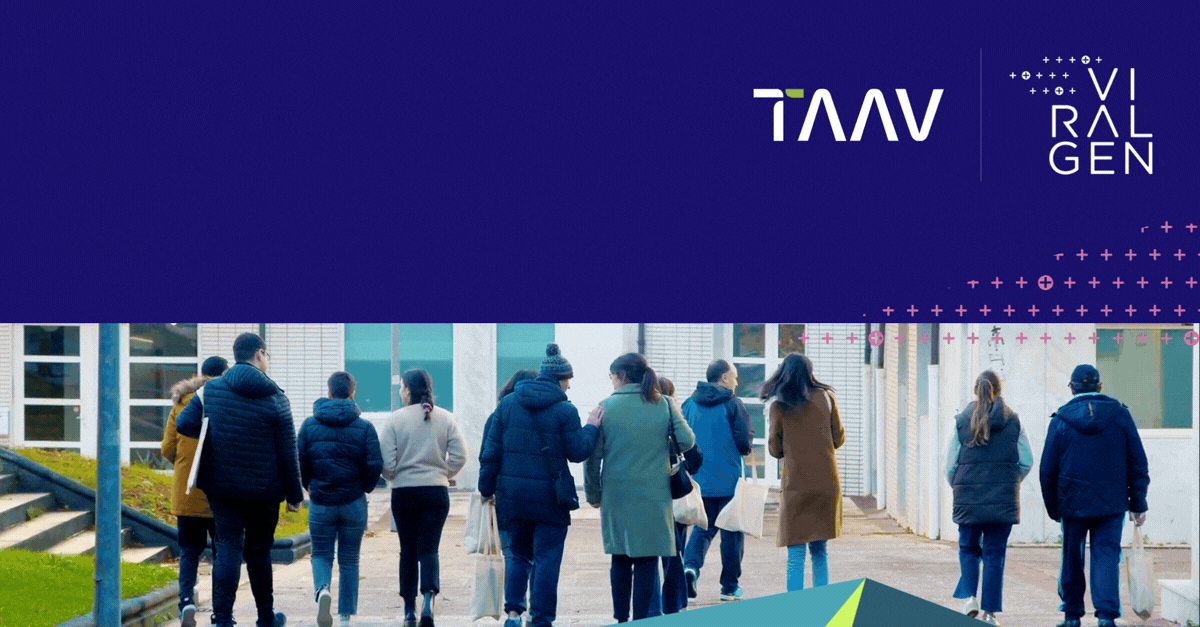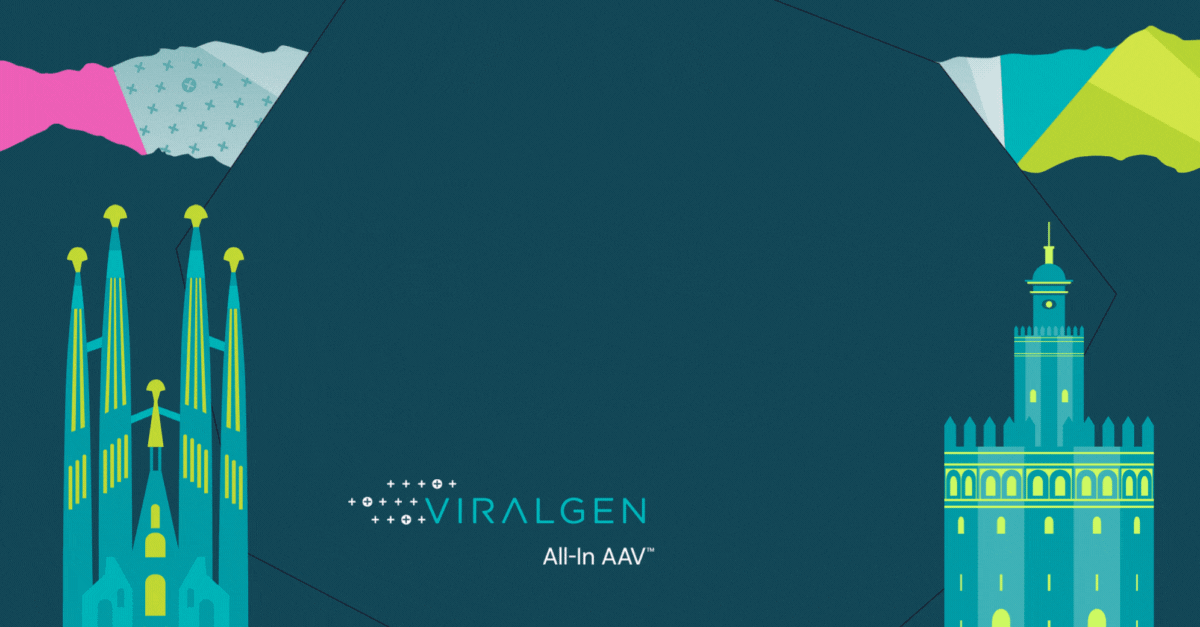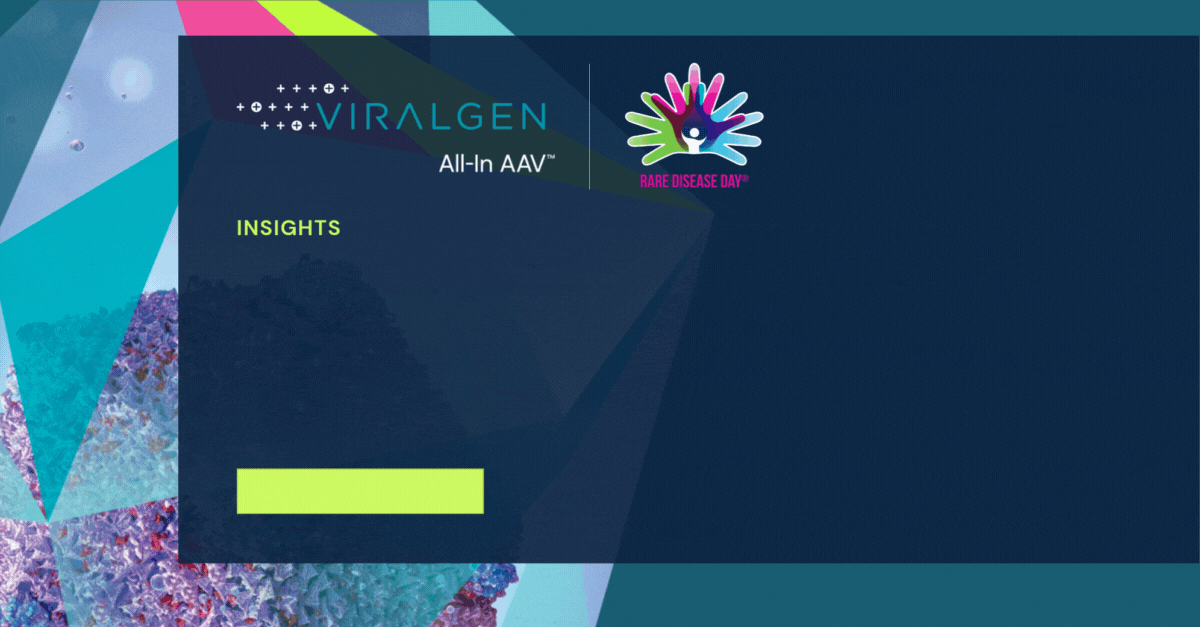Authors:
María Iglesias, Head of Digital & IT
Jens Keune, Data Science & Digital Product Manager
Abstract
As the biopharmaceutical landscape evolves, the integration of Artificial Intelligence (AI) into gene therapy manufacturing is increasingly essential. Rather than viewing AI as an independent value driver, we demonstrate how it is a key enabler of Viralgen’s mission: advancing Gene Therapy manufacturing and technology to transform people's lives, supporting our clients from development through the commercial manufacture of the highest-quality gene therapy drugs, at the right time and at the right scale to meet the needs of the patients worldwide. We draw on work done by Viralgen, a Contract Development and Manufacturing Organization (CDMO) with a proven track record in AAV manufacturing, to highlight real-world applications of AI in gene therapy, providing case studies and addressing the challenges and prerequisites for successful implementation.
Introduction
Artificial Intelligence (AI) encompasses computer systems capable of tasks that typically require human intelligence, including reasoning, learning, and decision-making. AI technologies span from basic rule-based systems to advanced machine learning, reinforcement learning, and generative AI models. In the biopharmaceutical sector, AI is now a focal point rather than a passing trend. At scientific conferences, the question “What is your AI strategy?” is increasingly common. However, we believe the most effective approach is to view AI as an enabler of core business strategies, not as a goal in itself.
As of late 2024, only ten viral vector-based gene therapies have received FDA or EMA approval, underlining the urgent need for more efficient development and manufacturing strategies. As a CDMO with the world’s largest dedicated AAV manufacturing facility, Viralgen aims to provide innovators with the optimal approach for scaling AAV-based gene therapy manufacturing towards commercialization. With over 1,500 batches produced on our proprietary Pro10™ AAV platform, Viralgen is uniquely positioned to harness the value of our extensive data with AI, accelerating speed to market and lowering manufacturing costs, making it possible to reach more patients, sooner.
Accelerating Speed to Market
A major challenge in gene therapy development is identifying the optimal design—e.g., capsids and transgene cassette elements—for manufacturability and potency. Late-stage changes to constructs can result in significant delays and increased costs. To address this, Viralgen has launched a suite of development services focused on construct and process optimization, in addition to established research, process development, formulation and filling activities. We applied mathematical models to identify how critical factors—such self complementary vs. single stranded, as well as transgene and backbone size—impact key manufacturing attributes such as productivity and full/empty capsid ratio. By leveraging these insights, we can provide early guidance in product development, thereby enhancing manufacturability and product quality.
AAV vectors remain a novel modality compared to traditional biologics like monoclonal antibodies. Regulatory expectations for AAV-based therapeutics are still evolving and can lead to numerous iterations in alignment. Understanding and assessing the occurrence of impurities in order to clearly specify their limits is one critical topic in meeting agencies’ expanding expectations. Viralgen has developed proprietary statistical approaches specifically adapted to our manufacturing processes, allowing us to accurately define product specification limits and align with regulatory expectations. With a track record of over 35 successful clinical trial submissions and a 100% IND success rate, we have established a strong foundation for digital innovation in regulatory affairs that can minimize turnaround times. Leveraging this expertise, we are now developing AI to efficiently extract relevant information and generate precise responses to regulatory queries. By analyzing historical submissions, our AI-driven tools identify common pitfalls and accelerate the preparation of regulatory responses, ultimately streamlining agency interactions and reducing time to market for innovative therapies.
Lowering Costs to Reach More Patients
A significant cost driver in gene therapy is the requirement for vast quantities of vector genomes for approved rAAV-based products. For many therapies, more than 10^18–10^20 vector genomes would be needed to treat the U.S. patient population alone. Current productivity levels (vg/L of cell culture) demand innovative solutions to improve efficiency and reduce costs per dose.
To address this challenge, we employ a range of data-driven strategies to continually optimize our manufacturing processes. Our proprietary Pro10™ AAV platform provides a distinct advantage, enabling not only scalable and robust production but also the comprehensive comparison of diverse product batches manufactured on a unified system. Interpreting the vast amount of production data generated is a complex task, as numerous process parameters—such as pH, CO₂ levels, transfection timing and dosing, and various concentrations—can all influence productivity. The addition of time as a variable further increases the number of potential options to be considered. To identify which parameters have the potential to improve process performance, we leverage applied machine learning models trained on extensive GMP and toxicology batch datasets and leverage high-throughput experimentation with parallel small- scale bioreactor runs and apply machine learning models trained on extensive GMP and toxicology batch datasets. This approach has led to significant process improvements; for example, by optimizing seeding densities, we have achieved up to a 50% increase in productivity. Expanding the range of input measurements for these models is also crucial. While traditional offline measurements provide only limited insight into bioreactor metabolic activity, advanced techniques like Raman spectroscopy enable real-time estimation of metabolite concentrations using chemometric models. This real-time monitoring offers deeper insights into cellular behavior, allowing us to dynamically optimize and control our production processes.
Another key area for driving efficiency is the management of our operational processes. A commitment to quality is evident in our extensive in-house capabilities, with over 75% of QC methods performed internally and strict adherence to the highest global regulatory standards through our Quality Management System (QMS). A vital component of this system is documentation management (DMS), which demands ongoing effort to create, update, and harmonize documents as our business evolves. To streamline this process, this year we launched an AI-driven project to assist with the generation and updating of Standard Operating Procedures (SOPs), making our documentation processes more efficient and ensuring ongoing compliance. While a well-structured and validated digital QMS is a necessity in the pharmaceutical industry, it can also be seen as an attractive source of high-quality data, essential for developing effective AI tools. This is why in our AI roadmap we prioritize integrating AI solutions with the QMS, enabling faster information retrieval for quality-related queries.
Integrating Generative AI Throughout the Organization
The rapid advancement of generative AI technologies in recent years makes it clear that their potential is transformative and therefore should be accessible to all employees and applied company-wide. However, in sectors rich in intellectual property such as biotechnology, privacy concerns have often led companies to restrict access to tools such as ChatGPT. Viralgen initially faced similar limitations, but in late 2024, we implemented a secure, corporate-wide solution that provides access to leading models like GPT, Llama, and Claude within a protected and secured environment. This empowers all Viralgen employees to utilize generative AI for everyday tasks—such as language refinement, communication, ideation, and summarizing large volumes of text. By defining specialized AI assistants, such as a project management coach, we ensure that these technologies can be leveraged across a range of functions to enhance productivity and innovation.
Key Enablers for AI Success
The successful adoption and effective use of AI technologies in gene therapy development and manufacturing depend on several interrelated organizational factors.
First and foremost, robust and relevant data are essential, as AI systems require comprehensive, high-quality datasets to make accurate predictions and drive meaningful improvements. Viralgen has made early investments in the implementation of several dedicated systems—including a Laboratory Information Management System (LIMS), Process Information Management System (PIMS) and Data Historian—to digitize our processes and capture the related data.
Equally important is the prioritization of data privacy and security, necessitating stringent safeguards to protect sensitive information and ensure compliance with regulations such as the General Data Protection Regulation (GDPR ). Clear policies and training addressing data ownership and ethical considerations are required, particularly in collaborative and cross-functional environments. At Viralgen, no new AI tool can be used before it is verified compliant with stringent internal IT security policies.
In addition, attracting and retaining talent with expertise in Data Science and Data Engineering fields is crucial for developing and maintaining AI technologies.
Finally, effective change management is critical, as the integration of AI often requires significant adjustments to workflows and organizational culture. Establishing AI Champions embedded in all parts of the organization plays a crucial role at Viralgen. Providing thorough training and fostering a climate of continuous learning and adaptability ensures that employees can fully leverage AI’s potential.
Conclusion
The integration of AI into gene therapy manufacturing is not merely a technological upgrade—it represents a paradigm shift in addressing the challenges of the biopharmaceutical industry. By uniting proven AAV manufacturing expertise, regulatory excellence, and AI-driven innovation, Viralgen is setting new standards for CDMO services. Our approach accelerates patient access to life-changing gene therapies, fulfilling our mission to make innovative treatments available worldwide.








